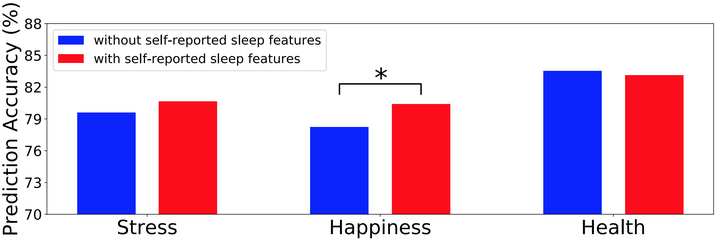Importance of Sleep Data in Predicting Next-Day Stress, Happiness, and Health in College Students

Abstract
Perceived wellbeing, as measured by self-reported health, stress, and happiness, has a number of important clinical health consequences. The ability to model and predict these measures could therefore be immensely beneficial in the treatment and prevention of mental illness. However, predicting self-reported health, stress, and happiness is a difficult problem often requiring large, multi-modal datasets. We show that the accuracy for predicting next-day wellbeing is improved when including simple sleep features.
Type
Publication
In Journal of Sleep and Sleep Disorders Research (suppl_1)